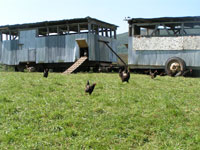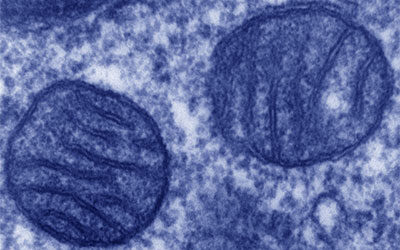 Polyculture is a system of agriculture based on permaculture principles that uses multiple crops in the same plot rather than planting the same foods year after year. It’s a system that approximates the natural diversity that occurs in nature, and although requires more physical labor than monoculture farming, it’s benefits include the much reduced prevalence of disease in crops, and increased habitat for local biodiversity. With polyculture, there is no need for toxic pesticides.
Polyculture is a system of agriculture based on permaculture principles that uses multiple crops in the same plot rather than planting the same foods year after year. It’s a system that approximates the natural diversity that occurs in nature, and although requires more physical labor than monoculture farming, it’s benefits include the much reduced prevalence of disease in crops, and increased habitat for local biodiversity. With polyculture, there is no need for toxic pesticides.
The star of polyculture farming is the father-son team Joel and Daniel Salatin of Polyface Farms in Virginia. A self-described “Christian-libertarian-environmentalist-capitalist farmer,” Joel Salatin’s philosophy of farming is centered around producing healthy soil and grass, where animals are moved from one pasture to another — chickens following the cows — to enhance fertilization. His 550-acre farm is featured in Michael Pollan’s book The Omnivore’s Dilemma as well as the 2008 documentary film, Food, Inc., which examines large-scale agricultural food production in the United States.
Yesterday’s article Joel Salatin advocates a better way to raise food in The Christian Science Monitor explains how polyculture works in more detail:
On a foundation of Christian principles, Salatin has built a farming ecosystem where cows, pigs, chickens, turkeys, and rabbits interact ecologically in a way that goes beyond conservation.
“What we’re looking at is God’s design, nature’s template, and using that as a pattern to cut around and lay it down on a domestic model to duplicate that pattern that we see in nature,” Salatin says.
What that means for Polyface in practical terms is that the cattle graze different areas of pasture every day. Then chickens pick through the same fields, eating bugs and spreading cow manure before clucking back to mobile coops.
The farm’s pigs generate fertilizer by rooting around the floor of the barn, lured by sweet corn into aerating the mix of hay, cow manure, and wood chips. The finished compost is spread on fields. This process not only takes almost nothing out of the environment, it puts nutrients back in.
“We believe that the farm should be building ‘forgiveness’ into the ecosystem,” Salatin says. “What does that mean? That a more forgiving ecosystem is one that can better handle drought, flood, disease, pestilence.”
A highly entertaining lecturer, Joel Salatin’s talks command standing ovations both for his humorous and powerful delivery style as well as his innovative and inspiring content. Speaking topics include “Food Emancipation,” “Local Food to the Rescue,” and “Everything I Want to Do is Illegal,” where he discuses why “the single biggest impediment to wider adoption is… the demonizing and criminalizing of virtually all indigenous and heritage-based food practices. From zoning to labor to food safety to insurance, local food systems daily face a phalanx of regulatory hurdles designed and implemented to police industrial food models but which prejudicially wipe out the antidote: appropriate scaled local food systems. A call for guerrilla marketing, food choice freedom legislation, and empirical pathogen thresholds offers solutions to these bureaucratic hurdles.”
We at Planet Thrive agree. Get a tour of the farm from Joel and Daniel in the video below:









awesome! so inspiring.
Keep up the good work, this guy is spreading the right message.